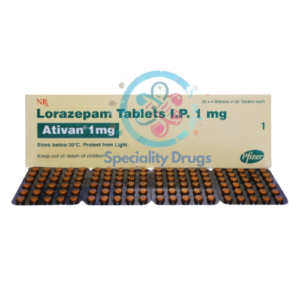What is ESENTRA 120MG Denosumab?
ESENTRA 120 MG is a prescription medication containing Denosumab 120 mg, a monoclonal antibody. Denosumab works by inhibiting RANKL, a protein involved in the formation and function of osteoclasts, the cells that break down bone. This helps reduce bone loss and strengthen bones.
What is the Use of ESENTRA 120MG Denosumab?
ESENTRA 120 MG is primarily used to:
-
Prevent skeletal-related events in patients with bone metastases from solid tumors.
-
Reduce the risk of fractures in patients with bone loss due to cancer treatment.
-
Manage hypercalcemia of malignancy in certain cancer patients.
Benefits of ESENTRA 120MG Denosumab
-
Strengthens bones and reduces fracture risk.
-
Prevents bone complications associated with cancer spread to bones.
-
Administered once every 4 weeks as a subcutaneous injection for convenience.
Side Effects of ESENTRA 120MG Denosumab
Common side effects:
-
Fatigue
-
Nausea
-
Back or joint pain
-
Swelling of the arms or legs
Serious side effects (seek immediate medical care):
-
Severe hypocalcemia (low calcium levels)
-
Osteonecrosis of the jaw (rare but serious)
-
Allergic reactions including rash, swelling, or difficulty breathing
Precautions:
-
Ensure adequate calcium and vitamin D intake during treatment.
-
Regular dental check-ups are recommended before and during therapy to reduce risk of jaw problems.
1. What is ESENTRA 120MG Denosumab used for?
It is used to prevent bone complications in patients with cancer that has spread to the bones and to reduce fracture risk.
2. What is the active ingredient?
The active ingredient is Denosumab 120 mg, a monoclonal antibody.
3. How does ESENTRA 120MG Denosumab work?
It blocks RANKL, a protein that activates osteoclasts, reducing bone breakdown and strengthening bones.
4. How is it administered?
It is given as a subcutaneous injection (under the skin) once every 4 weeks by a healthcare professional.
5. Do I need any tests before starting?
Yes. Calcium levels, kidney function, and dental check-ups are recommended before starting treatment.
6. What are common side effects?
Common side effects include fatigue, nausea, back or joint pain, and swelling of arms or legs.
7. What serious side effects should I watch for?
-
Severe hypocalcemia (low blood calcium)
-
Osteonecrosis of the jaw
-
Allergic reactions like rash, swelling, or difficulty breathing
8. How can I prevent low calcium while on ESENTRA 120MG Denosumab?
Take adequate calcium and vitamin D as prescribed by your doctor.
9. Who should avoid ESENTRA 120MG Denosumab?
Patients with low blood calcium, known allergy to Denosumab, or severe kidney problems should avoid it unless advised by a doctor.
10. Can pregnant or breastfeeding women use it?
Safety during pregnancy or breastfeeding is not established. Use only if clearly advised by a doctor.
11. How long does it take to work?
It helps reduce bone complications and strengthen bones gradually over several weeks.
12. Can I take other medications during treatment?
Inform your doctor about all medicines, supplements, or vitamins as some may interact with ESENTRA.
13. Is dental care important while on ESENTRA 120MG?
Yes. Regular dental check-ups are crucial to reduce the risk of jaw bone problems.
14. What should I do if I miss a dose?
Contact your doctor to reschedule the injection as soon as possible.
15. How should ESENTRA 120MG be stored?
Store in a refrigerator at 2–8°C, protected from light, and do not freeze.






Reviews
There are no reviews yet.